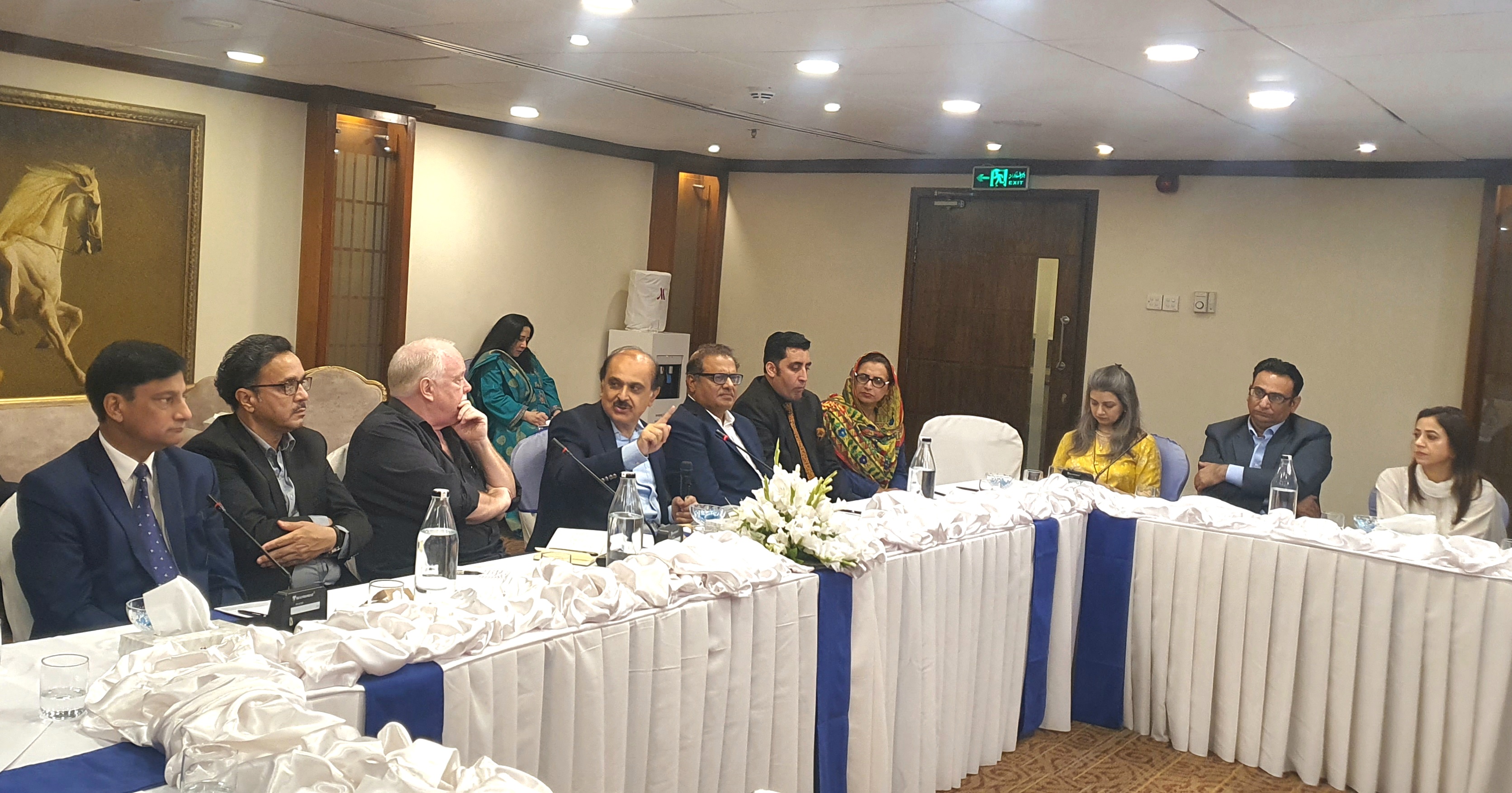PM Set to Announce the Education Emergency Initiative: Wani

Mr Mohyiuddin Wani, Federal Secretary of Education chaired a high-level International Partners meeting convened by Malala Fund, Pakistan. The partners met to discuss the Prime Minister's Education Emergency Initiative and initiate the Education Reform Coalition to Support the Prime Minister's Education Initiative under the leadership of the Federal Education Secretary. Speaking at the event, Mr Wani announced that the PM is holding a conference in 10 days on Education Emergency Initiatives. The Prime Minister will develop an Education Taskforce on his education emergency with quarterly reviews, of critical components of the ministry’s strategy to bring OOSC back to school. He further said that the Federal Ministry welcomes the required ownership of Education from the PM office as it will have a trickle-down effect and create the momentum, required to reduce the 26 Million out-of-school children to 9 Million. ‘Everyone knows what the problems are by now. The focus should now be on 36-degree, scalable solutions and scaling them up, he said. He urged the need for consistent messages of hope, for the common man and to garner higher commitment from all levels. He urged the donors and civil society’s advocacy and support to put their weight behind the PM's upcoming education agenda to help arrest the learning poverty agenda. He vowed to make ICT a model for education for other provinces and systems to follow. “I can't advocate that for the country if I cannot get done in ICT”. The convenor Javed Malik - Malala Fund praised the secretary's willingness to mobilize political will as a huge opportunity to seize. He elaborated on Malala Fund’s engagement with the ministry including the establishment of a book bank to print textbooks on alternate years to help save an estimated PKR 70b PKR. ‘This 70b and other such savings can help fund programmes run by Education Foundations in Provinces like Sindh and Punjab’, he said. Maleeha Haider -from the World Bank said, “We cannot deny the importance of learning poverty and it must be in the forefront, as this is a complex issue for even those children who are in school.” Mazhar Siraj from FCDO stated, ‘Bringing back Out of School Children is a moral issue and it is not just a literacy issue but also that of population, nutrition and health. Asima Rehman from USAID asked for a need to depoliticize education, ‘when governments change, how can we ensure it remains a priority for all governments?’ Among other notable recommendations were by Dr Mukhtar Ahmed who elaborated, ‘ADB is working on the demand side supporting BISP in enrollment of out-of-school children and venturing to Non Formal Education and Skills in the next 3 - 4 years’. Noreen Hassan from UNICEF recommended, ‘to focus on quality as part of the upcoming conference’. Ms Kuno Yoko from JICA proposed, ‘in addition to reading, improving numeracy is also important. We need to have Alternative Learning Pathways to meet the OOSC crisis and is contributing in this regard.’ Over 35 participants ranged from Malala Fund, The World Bank, The Foreign and Commonwealth Development Office (FCDO), USAID, UNICEF, JICA, UNESCO, and GIZ. The interactive meeting ended with Mr Wani urging the participants to not work in silos and develop coordination and coherence for collective wins. He asked the development partners to share best practices, provide teacher training, and accelerate the implementation and course correction.
